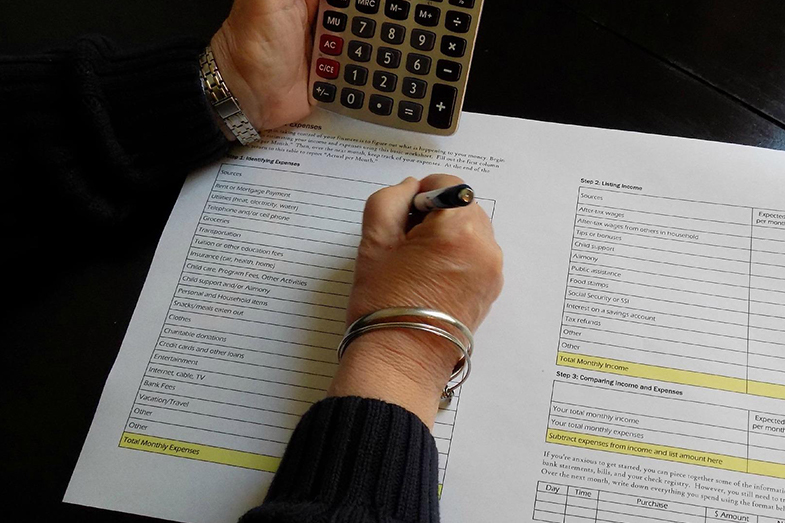9 Steps to Planning an Event

Prevent your big event from becoming a massive, unorganized embarrassment. Knowing how to plan an event will help you keep yours organized and smoothly unfolding.
erpbyalyson.com gathered information on event planning, steps, and tips to make any size event flow smoothly from start to finish.
Why Planning Is Important for an Event
To pull off a successful event, you must focus heavily on the planning stage; this is the most significant stage to reach your objectives. You must visualize what you want to achieve. Without this, you will not be able to calculate the success or failure of your event’s results.
Steps to Planning a Successful Event
Every event, no matter how small or large, requires attentive planning and organization. According to webcastingandvirtualevents.com, with everything from establishing your budget to promoting your event, there are multiple components you should start considering early on to accelerate the process and keep it on track. The following are steps and tips to help you get your event put together:
1. Define the Event’s Purpose
The purpose or “why?” Is the foundation of your event’s existence and should be clearly defined from the get-go. Are you attempting to:
- Drive company or product sales?
- Support a product launch?
- Increase brand awareness?
- Or a combination of goals?
Apart from this “defining moment,” you must also consider the following:
- Time Frames (How long do I have to put this together)
- Event Size (What capacity can you handle)
- Demographics (Is this going to be a local, national, or international event)
- Location (Is this a local event or a destination event)
- Broadcasting (Will you be live broadcasting, holding an in-person event, or a combination of the two)
Tip: The more you define at this point, the better you can calculate your event budget.
2. Create Your Event Budget

Based on your budget calculations and scope of needs. You should begin mapping out line-item costs, giving you an understanding of how your budget will be dispersed across those needs. Consider the following breakdown:
- 40 – 45% Event Marketing and Promotion
- 25 – 35% Talent, Headliners, and Speakers
- 20 – 30% Printed Material
- 15 – 20% Venue Cost
Note: As your event gains more definition and draws closer, you should be prepared to revisit and potentially restructure your budget.
Tip: Event and service costs can fluctuate and should be negotiated early on to secure the best pricing and payment arrangement.
3. Select Your Venue and Date
When searching for your event’s venue, ask questions about all venue aspects, policies, requirements, services, etc., to ensure it’s right for your event. Consider your budget, location, facilities, and on-site staff. Are there restrooms throughout the venue? And how are emergency situations handled?
The date you select can significantly impact your event attendance. Unless your event’s purpose is coupled with a national or religious holiday, be mindful of conflicting dates and events.
4. Assemble a Winning Team

Working alone has its benefits but will backfire at some point. You can delegate the authority to conduct and accomplish tasks along the way to your event. Some of the roles people can fill for you include:
Project Manager – This person is responsible for the event’s execution. They manage the budget, drive strategy, and make purchasing/acquisition decisions.
Venue Coordinator – This person is the venue’s principal contact, coordinating the vendors, the sponsors, volunteers, and staff (security, photography, videography, food/beverage, etc.).
Agenda Development – This individual works with speakers and talent to ensure the schedule is correct and communicated to all parties. This person also coordinates meetings at the event to foster networking.
Event Design – This group of people or agency will put together all the visual concepts and design for printed and web materials and anything required for the mobile event app.
Marketing – This person oversees branding, communicates with registrants, coordinates social media chatter, and directs media relations. They also make sure a guest is equipped with everything they require to maximize their event experience, like maps, schedules, speaker info, networking instructions.
Registration and Participant Check-In – This person or team works closely with a chosen software provider, produces and manages participant identification (name tags, badges, etc.), generates performance reports, and ensures the registration process’ smooth operation throughout the event.
Sponsor Relations – This is the team member working to map out booth locations, sell sponsorship, build relationships with sponsors, and foster community group/organization relationships.
Tip: Programs like Asana, Smartsheet, and Monday.com can help you seamlessly communicate with and coordinate your team’s tasks, milestones, and deadlines.
5. Event Branding
When choosing your event branding, consider that an event brand should reflect your organization’s brand or core principles but should have a recognizable brand of its own. During the development process, consider how your brand will come across online and in person. Event brands typically include the following:
- Name
- Logo
- Colors
- Theme
Note: Your venue decor, event app, website, social media, email correspondence, tickets, signage, wayfinding, and other promotional material should all come together in design and branding to convey and support the story you are trying to tell.
6. Order of Events

One of the best selling points for your event is an established order of events and a basic event framework. This includes:
- Food and beverage availability
- Networking activities
- Lectures
- Product launch or reveal
- Entertainment
- Ceremonies
Tip: Your event schedule is vital information for both event attendees and sponsors and should be communicated on all platforms.
7. Technology
Technology has significantly improved event spaces, operation, and communication for both organizers and event-goers. Here are some of the areas where your tech becomes priceless:
Productivity Technology – Event organizers should utilize digital project management tools to stay organized. Events can be complex and confusing, but project management software helps relieve that stress.
Ticketing and Registration – Select a ticketing platform early to get your audience to the registration website ASAP.
Event Mobile App – A mobile app allows attendees to access schedules, interact with other attendees, foster an engaging, informed environment (whether the event is being held virtually or in-person.
Live Streaming – Live streaming your event is a great way to connect and extend the reach of your event on a global scale. Recording the event is another way to extend its reach beyond the event’s date.
8. Confirm Speaker, Sponsor, and Exhibitor Participation

Speakers, sponsors, and exhibitors are among the most common ways to add immediate context and value for your event’s attendees and can help you by offsetting event costs.
Your event’s speakers and sponsors can help you offset event costs by:
- Individually promoting the event to their audiences
- Participating in promotional events or podcasts
- Fundraising
Tip: Businesses and individuals sponsoring an event are most likely coming on board with funds and services for your event. Don’t be afraid to ask for more participation.
9. Develop Your Marketing and Promotional Plan
Successful events will always have a marketing and promotional plan to advertise and generate public excitement. There are many different ways to go about marketing your event like:
- Email campaigns
- Social media
- Blogging
- Giveaways
- Contests
- Online advertising
- Flyer advertising
- Direct mail advertising
- Billboards
Tip: Your advertising tactics should be a strategic element of your general marketing plan.
Event Planning
In this article, you discovered several steps and tips to help you organize, advertise, and conduct a well-planned event.
By taking the time to plan your event in great detail, you are establishing a process and pattern meant to keep your event on track and maximize its success.
By ignoring the planning phase, you are dooming your event to failure, costing you and your sponsors valuable time and resources.
Sources:
bu.edu/meetatbu/for-bu-departments/event-planning-tips/
specialevents.gatech.edu/resources/guide/checklist
msmu.edu/media/website/content-assets/msmuedu/home/about-msmu/university-and-external-events/documents/Event_Planning_Timeline.pdf